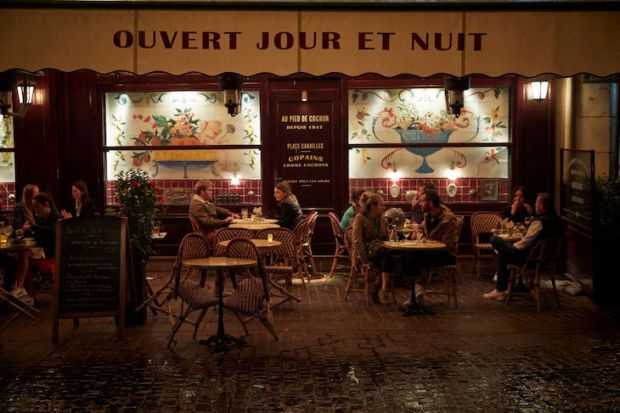In the wake of Vladimir Putin’s surprise announcement of partial mobilisation on Wednesday, thousands of young Russian men decided that the time had come to flee. Google searches for ways to leave Russia (as well as for ‘how to break your own arm’, another way out of military service) spiked. Flights sold out, and long lines of cars formed at usually-sleepy border crossings into Georgia, Mongolia and Kazakhstan – as well as the more conventional transit point to Finland.
But for most would-be refugees, escape from Putin’s Russia and possible involuntary service in Ukraine remains an impossible dream. Just a handful of countries – among them Turkey, Georgia and Armenia – accept Russians without visas, and they are already overflowing with refugees from the Putin regime. The visa section of the US embassy in Moscow has been closed since 2018 when the Russian government banned its nationals from working there as support staff.
Over the summer Latvia, Estonia, Lithuania and Poland tried to lobby the EU to stop issuing visitor visas (which they emotively dubbed ‘tourist’ visas) altogether. Brussels resisted a blanket ban – but in August made obtaining a Schengen visa for the EU far harder for Russians. The Balts and Poles closed their borders to Russian visitors anyway. ‘It is unacceptable that people who support the war can freely travel around the world, into Lithuania, the EU,’ Lithuanian Interior Minister Agne Bilotaite said. And though she claimed that exceptions would be made on ‘humanitarian’ grounds and for proven anti-Putin activists, in reality no such thing as a ‘humanitarian’ Schengen visa exists. In any case, a large proportion of opposition activists are unable to leave Russia because they have pending court fines (processed deliberately slowly), are already in jail, or have failed to register at their local draft offices.
The moral hazard of the Baltic states’ position was proved when Putin made his mobilisation speech just two days after the border closures. Thousands of Russians who would have liked to make a new life in Europe have been banned from doing so simply because of their nationality.
Hating Russians – rather than hating the Putin regime – may be historically understandable in countries with long and painful colonial histories. But that doesn’t make it right. In May, my wife (Moscow-born, though ancestrally Ukrainian) and son spent ten days volunteering to help Ukrainian refugees who poured though the border crossing at Przemsyl, Poland. They were with a volunteer organisation called Russians for Ukraine (RFU), entirely staffed by recently exiled Russians, crowdfunded on the internet, and based in a private house rented by founder Georgy Nurmanov using his own money. The RFU volunteers wore tabards with the Russian flag without the red stripe – making it white, blue and white – symbolically removing the blood from the flag. But in June the Polish authorities banned RFU volunteers from Przemsyl’s train station for no apparent reason than the fact that they were Russians. Russians on the side of the angels, doing their bit to atone for their country’s aggression by volunteering to help Ukrainians find new lives in Europe, were inconvenient to the Polish narrative.
Punishing people on the basis of their nationality – or even forcing potential visitors to prove that they have the correct political opinions before admitting them – is wrong, racist and frankly un-European. Collective punishment is best left to the likes of Putin.
If the West really wished to cripple the Putin regime, it would be welcoming fugitive Russians with open arms instead of attempting to bottle them up. As a July report by the Yale School of Management showed, one of the most devastating effects of sanctions has been to precipitate a brain drain of top managers, IT specialists and young professionals. These people are the life-blood of Russia’s future. And, as a previous generation of post-Soviet exiles amply proved by founding Google, PayPal, WhatsApp – not to mention earlier post-revolutionary exiles who invented the helicopter and Hollywood – Russia’s loss is very much the West’s gain. If Liz Truss really wants to show how open Britain is as a result of Brexit, embracing Russian emigres would do just that.
Putin wants to keep his brightest, richest and best close – indeed a common fear among many international-minded Russians is that he will close the borders. In effect, Europe is doing his work for him. But Boris Johnson had it right in March when he called for punishing Putin but helping Russians. The best way to do both is to help them leave his failing, war-crippled country.
Got something to add? Join the discussion and comment below.
Get 10 issues for just $10
Subscribe to The Spectator Australia today for the next 10 magazine issues, plus full online access, for just $10.



















Comments
Don't miss out
Join the conversation with other Spectator Australia readers. Subscribe to leave a comment.
SUBSCRIBEAlready a subscriber? Log in